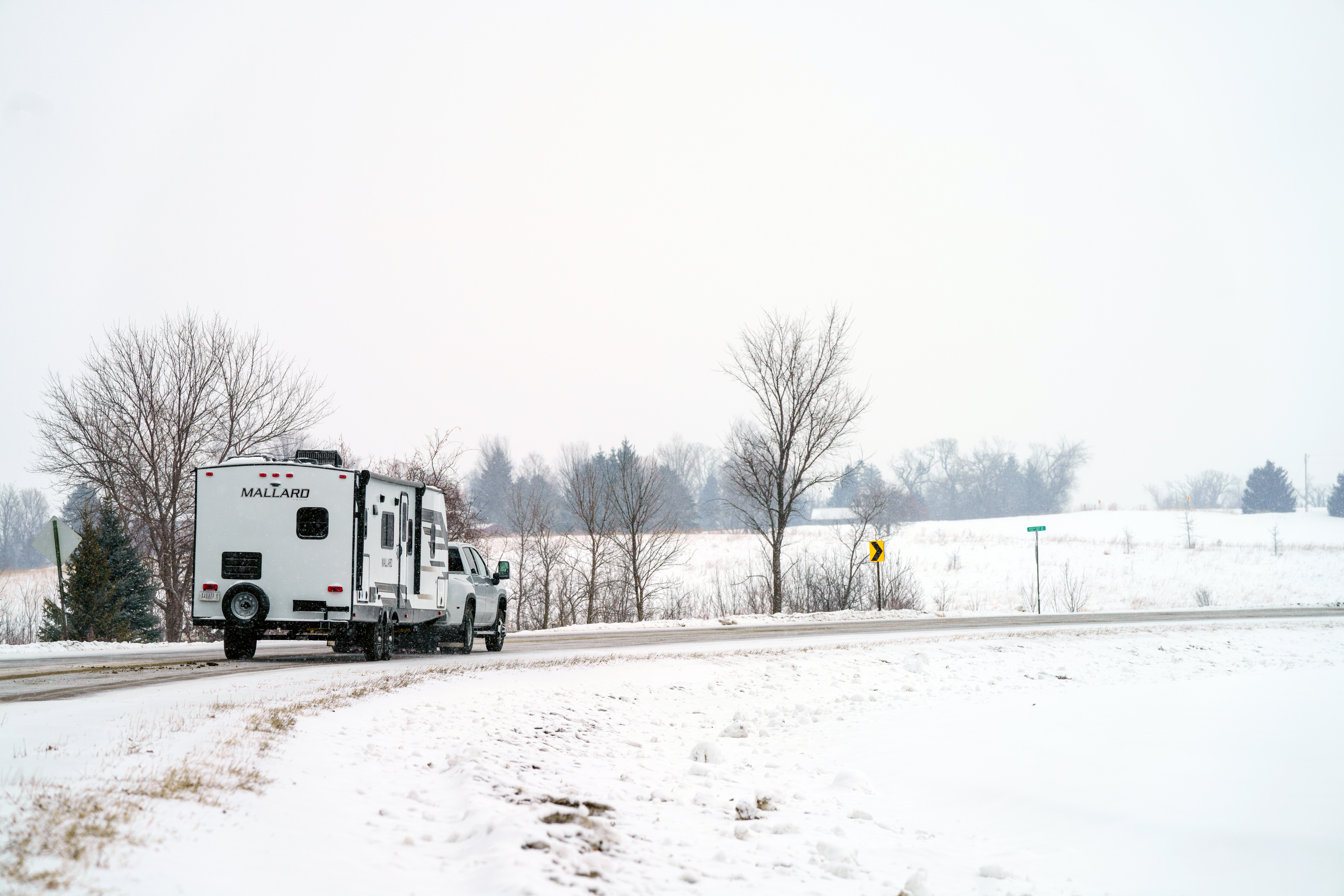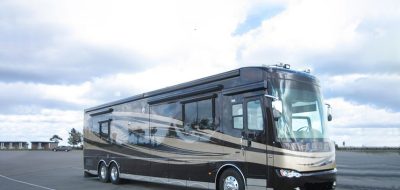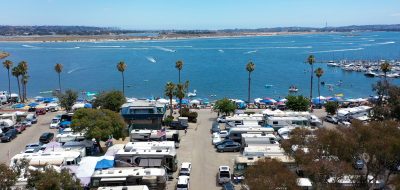Part of the appeal of RVing is the freedom and novelty of the open road. Different regions come with different types of adventure but also unique challenges and potential strains on your vehicle.
Sweltering humidity, high altitudes, and frigid rain can all take a toll without proper care and maintenance — leading to expensive repairs and less time for the things you love. Here’s a quick breakdown of how climate and geography can affect RVs and how to keep your RV safe and on the road longer.

Climate factors
Oscillating temps and precipitation affect RVs more than we realize. As you venture out, be sure to factor in the following:
Temperature
As you can imagine, extreme temperature changes can take a toll on your RV. From a structural lens, warmer weather can cause the roof and sidewalls to expand, potentially leading to cracks and leaks. Conversely, cooler temps could freeze and burst your pipes or cause damage to other appliances without proper care. Additionally, drastic temperature swings will hamper the performance of your heating and air, forcing more energy consumption and higher fuel costs.
Consider using insulated materials like window covers or door sweeps to keep your rig temperate and to protect your RV long-term.
Humidity
If left unchecked, high humidity levels can lead to mold or mildew spores spreading throughout the interior of your RV – resulting in damage, unpleasant odors, and potential health concerns. Humidity can also trap moisture in your RV, which over time, can lead to warping, rot, or even rust — wearing down the lifespan of your vehicle.
Investing in a dehumidifier and a proper ventilation system will go a long way in controlling humidity levels within your vehicle.
Rain and snow
Precipitation is inevitable, but without proper care, it can lead to leaks, water damage, rust, mold, or even (in the case of snow) a collapsed roof.
To mitigate the risk, ensure your RV is properly sealed and the roof and windows are in good condition. Also, consider investing in a stable ladder and a push broom to combat accumulated ice and snow.

Geographic factors
Whether you’re exploring the mountains or making a break for the beach, you’ll find the roads between to be anything less than consistent. Here are a few geographical considerations to keep in mind.
Altitude
Higher altitude means lower air pressure and oxygen, which in turn can directly impact your RV’s engine and tires.
As air pressure decreases, your engine might have to work a little harder to compensate — leading to a decrease in power and fuel efficiency. If overworked long enough, your engine could even be susceptible to damage.
A decrease in air pressure also means your tires will likely expand and could be more vulnerable to blowouts or general wear and tear at a quicker pace — reducing their lifespan and costing you more in the long run.
If you know you’re heading into an elevated environment, it may be worth adjusting your engine’s performance settings to match and ensuring your tires are properly inflated. And as always, use caution when driving on steep or winding roads.
Terrain
As wonderful as the open road is, it’s not always smooth sailing. Terrain such as hills, mountains, or even generally rough roads will place more demand on your tires, suspension, and engine.
For example, uphill driving can force your engine to work harder to maintain speed, thus consuming more fuel or potentially even overheating. Meanwhile, downhill driving can put more strain on your brakes as they work to slow your RV’s momentum. And the more jarring terrain, such as excessive gravel or potholes, can put additional stress on your tires.
Just make a point to be mindful and consider appropriate adjustments to your engine performance or tire pressure, and maybe consider giving your suspension a once-over before your next cross-country trip.
Weather
Long trips can bring various weather patterns: Coastal areas have a higher propensity for tropical storms. Deserts bring high winds and temperature swings. The south gets hot in the summer.
You get the point.
To prevent damage caused by extreme temperatures or acts of nature, get your RV inspected and tuned up regularly, make sure your rig is adequately sealed and insulated, and secure awnings and any other external features during storms.

Make sure you’re covered
Even if your RV is still under warranty, it may extend to only some components or appliances for a limited time, quietly leading to costly repairs if you aren’t sure when certain warranties end. Fortunately, God Sam’s Extended Service Plan provides peace of mind, bookending coverage to ensure you never drive unprotected and risk paying costly repair bills.
The Good Sam Extended Service Plan covers the bases for RV owners, protecting them from paying unexpected costs associated with repairs. They let you decide your deductible, where to repair your vehicle, and even your payment terms. Plus, if you sell your RV, Good Sam transfers the plan onto the new owner at no cost to you. Check out our comprehensive guide that covers the types of major repairs the Good Sam Extended Service Plan typically covers.









